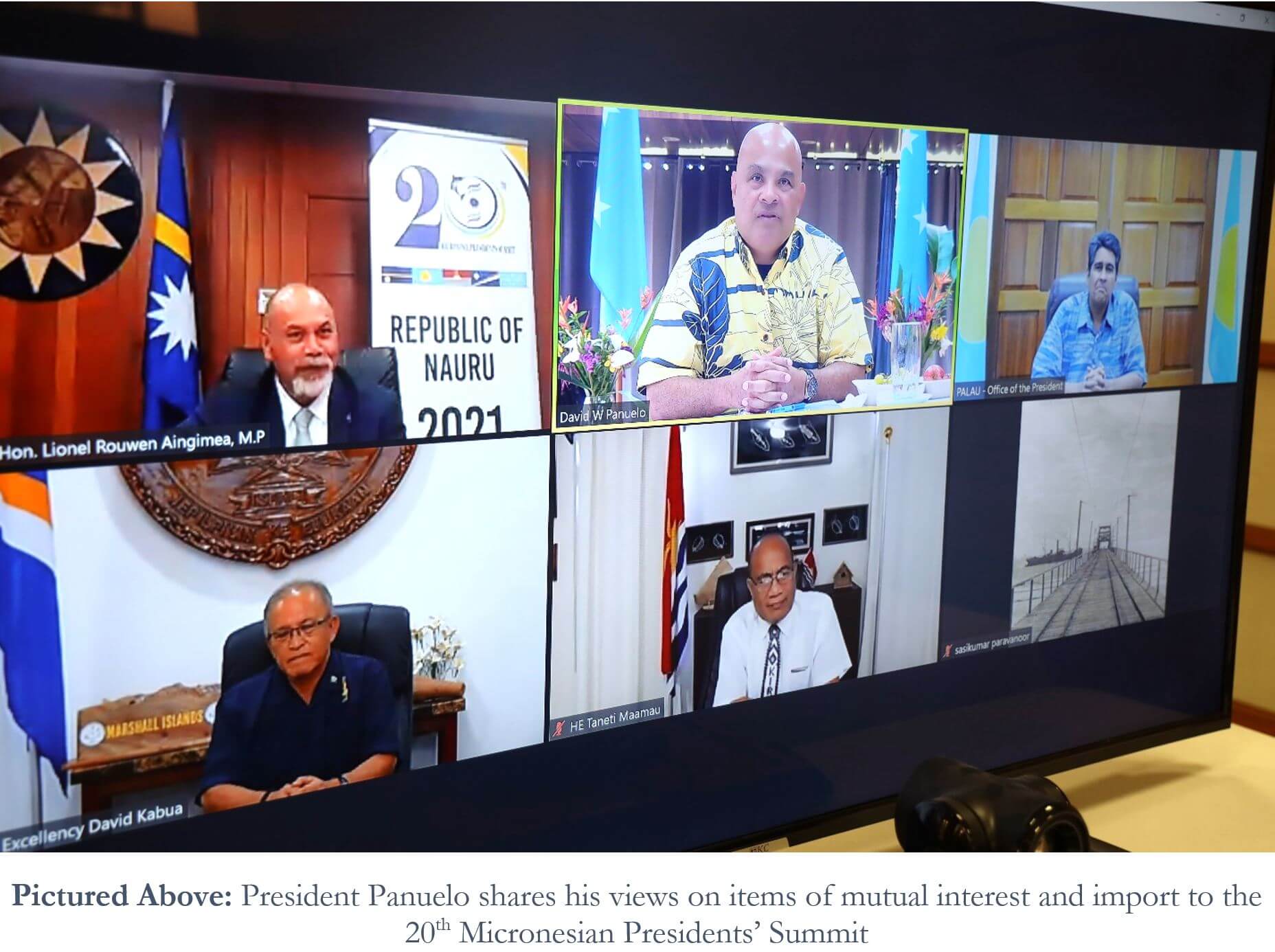Micronesian leaders discuss transport, COVID and the Forum split
By Nic Maclellan
Leaders of five Micronesian countries have moved to strengthen their sub-regional co-ordination at the 20th Micronesian Presidents’ Summit (MPS).
Meeting under the theme “Sustainable Transportation and Trade through the Micronesian Region”, the five presidents issued the Naoero Communiqué covering trade and shipping, climate change, the COVID-19 pandemic, transnational crime and IUU fishing – and the Micronesian bloc’s troubled split with the Pacific Islands Forum.
Nauru President Lionel Rouwen Aingimea hosted the virtual meeting from . . .
Please Subscribe to view full content...
